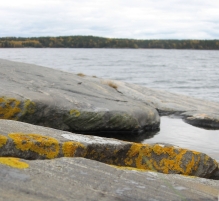Local participation in catchment based management
Local participation in catchment based management: institutional structures and policy design for encouraging measures in agriculture.

Project leaders: Monica Hammer (Södertörn University College), Berit Balfors
Participants: Frida Franzén
Key words: public participation, WFD, adaptive management, governance, catchment based management
Project period: 2008-2013
Funder: Foundation for Baltic and East European Studies
Project description
The need for ecosystem management consistent with sustainable development calls for an understanding of the social-ecological system that ecosystems are governed within. In a world of changeability there is need for adaptive and integrated management framework. This includes the understanding for local variations in the governance structure and social capacity, such as institutional structures, leadership and collaboration. To achieve understanding of local variations and to build socially sustainable development, local participation has been regonized as important both in current research and in policies, for example in the EU Water Framework directive (WFD). The implementation of the WFD imply new adminstrative boundaries for water quality management, following the natural boundaries of drainage basins (catchment areas). The aim of the directive is better water quality in Europe where reduction of nutrient loadings in the water is one important aspect. The agriculture is one of the main activities causing nutrient leakage and loadings into the water. Hence, measures in the agriculture will a key for achieving the objectives of the directive. Creating wetlands in the agricultural landscape is one possible measures to reduce the nutrient leakage. These activities are optional commitments for the farmers, thus active and volontary participation has to be encouraged.
Aim
The overall aim of this project is to explore what is encouraging local participation in measures to reduce nutrient leakage in the agriculture. This could lead to a better understanding of how to develop projects and policy settings aiming to implement these measures. One of the aims is to study what is characterizing a governance structure that would be appropriate for implementing projects such as wetland projects in catchment areas. Another aim is to study which variables that are important for farmers for the decision to participate in such project. This implies a better understanding for both institutional arrangement and variables determing individually choices of participating.
Cooperation
The project is conducted within the research project ECOPOOL which is funded by the Foundation for Baltic and East European Studies and is a collaboration between Södertörn University College, the Environmental Management and Assessment research group, KTH, and others, such as Enveco Environmental Economics Consultancy Ltd. 50 % of the research is conducted at Enveco Environmental Economics Consultancy Ltd.
EcoPool Enveco Environmental Economics Consultancy Ltd. Foundation for Baltic and East European Studies
